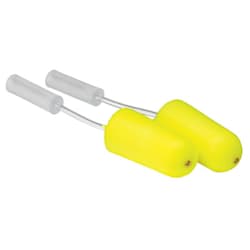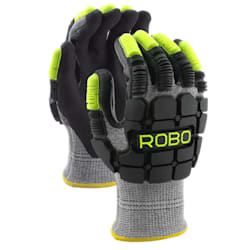Mask and Face Covering Guide
The Stauffer Glove & Safety Guide to Face masks and Face Coverings
In many industrial and medical settings, face masks and face covers have been essential tools for protecting workers and patients.
![]()
Industrial Uses
In many industries, face masks and face covers are used to protect workers from inhaling dust, fumes, and other harmful particles. Workers in the construction, mining, and manufacturing industries are often exposed to hazardous substances and are required to wear protective gear, including face masks and face covers.
In the food and beverage industry, face masks and face covers are used to prevent contamination of food and drinks. Workers in the industry are required to wear face covers to protect the food from particles that may cause contamination.
![]()
Medical Uses
Face masks and face covers are also commonly used in medical settings. In hospitals, healthcare workers wear face masks to prevent the spread of infections between patients and healthcare workers. Surgical masks are used during surgeries and other medical procedures to prevent contamination of the surgical site.
In dentistry, face masks and face covers are used to protect dentists and dental assistants from exposure to saliva and blood. The masks also prevent the spread of germs between patients.
Benefits of Face Masks and Face Coverings
Face masks and face covers offer several benefits. These benefits include:
-
Protection from Harmful Particles- Face masks and face covers are effective in protecting workers from inhaling dust, fumes, and other harmful particles. They are also effective in preventing the spread of infections in medical settings.
-
Cost-Effective - Face masks and face covers are relatively inexpensive, making them a cost-effective way to protect workers and patients.
-
Easy to Use - Face masks and face covers are easy to use and require no special training. They are readily available in most stores.
-
Comfortable - Many face masks and face covers are designed to be comfortable to wear for extended periods. They are lightweight and breathable, making them ideal for use in various settings.

FM3B Disposable Face Mask
- 3 Ply
- Universal Size

Honeywell Safety pack
- Mask, disposable gloves, & sanitizing wipes

FM3B Disposable Mask, Kids Size
- 3 Ply
- Child Size
Surgical & respirator masks are needed by healthcare workers where they are used in conjunction with other protective equipment. There are several types of disposable face masks and face coverings available in the market. The most common ones are:
Surgical Disposable Face Masks
Surgical disposable face masks are small pieces of material used to keep the germs from an infected person's coughs or sneezes from spreading. Surgical disposable face masks do not prevent the inhalation of small airborne contaminants, as it is a physical barrier to prevent larger amounts of fluid from entering the wearer's mouth or nose.

Disposable Respirators
Unlike surgical disposable face masks, respirators are designed to reduce the wearer's exposure to airborne contaminants. Respirators are designed to be sturdier than surgical masks. N-95 and N-99 respirator masks should prevent 95% and 99%, respectively, of particulates from entering someone's mouth or nose.
Quick Facts About Surgical Disposable Face Masks
- Used as a physical barrier to protect user from large droplets of blood or bodily fluids
- Protect others from the wearer's infections - trap bodily fluids expelled by the wearer
- Worn by healthcare workers to prevent accidental contamination of patients by organisms present in mucus and saliva
- Can help keep contaminated fingers away from the mouth and nose.
- Not designed to seal tightly against the user's face
- Not designed to prevent the inhalation of small airborne contaminants - contaminated air can pass through gaps between the face and mask or be pulled through the mask's material.
- Cannot be relied upon to protect workers from airborne infections
Quick Facts About Disposable Respirators
- Offer the best protection for workers that come in contact or close (< 6 feet) to those with influenza-like symptoms
- With a properly sealed respirator mask, inhaled air is forced to travel through a respirator's filtering material, blocking much smaller particlulates than a surgical mask
- Can protect the wearer from influenza and other common respiratory infections as well as other airborne illnesses like measles, chickenpox, or tuberculosis
- Are designed to create a tight seal on the wearers face, so must be properly sized for the wearer
- Are designed to prevent the inhalation of airborne infectious particulates
- Provide a higher level of protection than a surgical mask when worn properly
N95 Respirator Masks
These masks are designed to filter out 95% of airborne particles and are recommended for use in high-risk settings. The best options for N95 respirator masks will have two valves dedicated to the movement of air and moisture in and out of the respirator. They are commonly used by healthcare workers and first responders.
Cloth Face Coverings
These are reusable face coverings made from a variety of materials, including cotton, polyester, and nylon. They are not as effective as surgical masks or N95 masks, but they do provide some level of protection.




